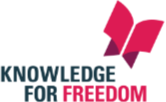Knowledge for Freedom alumni are invited each summer to participate in fellowship programs to further explore major questions in political philosophy. Our most recent fellows’ essays are presented below in an anthology of student voices. These essays are the works of young scholars, and as such, reflect craftsmanship and ideas still in progress, and are written in the spirit of open inquiry.
Filter by program
Filter by tags
View all
()
activism
(0)
AI
(0)
alienation
(3)
attention
(1)
censorship
(0)
climate
(0)
colorism
(1)
community
(8)
Culture
(4)
democracy
(7)
discrimination
(1)
education
(14)
empathy
(4)
equality
(6)
ethnicity
(1)
extremism
(1)
family
(1)
free speech
(1)
freedom
(1)
gender
(8)
history
(7)
identity
(5)
illness
(0)
inequality
(7)
inequality; justice; democracy; history; love; representation; race; racism; society
(0)
information
(2)
injustice
(2)
Isolation
(2)
justice
(8)
language
(0)
law
(0)
leadership
(4)
loneliness
(1)
love
(2)
marketing
(1)
media
(4)
media and social media
(1)
mental health
(1)
new perspectives
(1)
oppression
(1)
politics
(1)
power
(1)
protest
(1)
race
(11)
race and racism
(0)
racism
(11)
religion
(1)
religionpower; community; extremism
(0)
representation
(1)
sexism
(2)
sexuality
(1)
social media
(5)
society
(11)
storytelling
(1)
technology
(2)
violence
(5)
voting
(0)
war
(1)
Women
(4)
women's rights
(1)
Women's rights
(0)
Teagle Humanities Fellowship
Andrew Vera reads Plato and Richard Rodriguez to show the importance of making philosophy and philosophical inquiry key components of a meaningful education, especially during a time of unprecedented challenge for New York City public schools.
Teagle Humanities Fellowship
Lydia Kim reads Cathy Park Hong, Erika Lee, and Audre Lorde to explore complex questions of Asian American identity and shows how education is essential to understanding the past, addressing injustice in the present, and building solidarity for the future.
Teagle Humanities Fellowship
Wilson Mach reads John Stuart Mill, Ta-Nehisi Coates, and James Baldwin to discuss the question of free speech on college campuses and on social media.
Teagle Humanities Fellowship
Mike Guillen reads Sophocles and Alexis de Tocqueville in order to explore challenges facing American democracy, and shows us how we can prevent the tyranny of the majority from creating and perpetuating systems of social inequality and political polarization.
Teagle Humanities Fellowship
Jamie Budhram reads W. E. B. Du Bois and Virginia Woolf and reflects on identity, society, history, culture, and the immigrant experience in America.
Teagle Humanities Fellowship
Giancarlo Gallicchio explores the question of today’s “culture wars” by reading how Sigmund Freud and Clifford Geertz define “culture” in the first place.
Teagle Humanities Fellowship
Pauline Francez Gordula reads Toni Morrison’s novel Song of Solomon and Virginia Woolf’s essay A Room of One’s Own to look at the history of women’s rights and the challenges women face in today’s society.
Teagle Humanities Fellowship
Alena Gutierrez examines the debate over abortion and women’s sexual agency by looking at its long history from Aristophanes and Mary Shelley to the present to show how oppressive gender roles affect society and the lives of individual women.
Civic Leadership Summit
Dylen and Maosuf write about thinking on their feet and adapting their teaching strategies to facilitate a conversation with their peers.
Civic Leadership Summit
At City College, students from different backgrounds read transformative texts on education and race.
